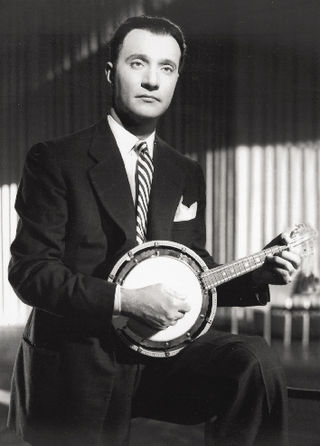Top Qs
Timeline
Chat
Perspective
Mohammed Abdel Wahab
Egyptian singer, actor and composer (1902–1991) From Wikipedia, the free encyclopedia
Remove ads
Mohamed Abdel Wahab (Arabic: محمد عبد الوهاب), also transliterated Mehammad Abdelwehab, Egyptian Arabic pronunciation: [mæˈħam.mæd ʕæbd el wæhæːb] (March 13, 1902 – May 4, 1991), was a prominent 20th-century Egyptian singer, actor, and composer. He is best known for his Romantic and Egyptian patriotic songs.
This article may be written from a fan's point of view, rather than a neutral point of view. (April 2023) |
He was known for his Egyptian nationalist and Arab nationalist and revolutionary songs like "Ya Masr Tamm Elhana" (O Egypt, happiness is here), "Hayy Ala Elfalah" (The call of duty), "El-Watan El-Akbar" (The Greater Homeland), "El Geal El Saed" (The rising generation), "Masr Nadetna fa labbena Elnedaa" (Egypt Called us and we Have Answered), "Ulo le Masr" (Tell Egypt), "Hobb Elwatan Fard Alayya" (Patriotism is my Obligation), "Sot Elgamahir" (Voice of the Masses), "Ya Nesmet Elhorriyya" (O The Breeze of Freedom), and "Sawa'ed men Beladi" (Arms from My Country).
He also composed the national anthem of Libya which was adopted from 1951 to 1969, and again since 2011.[1][2]
Remove ads
Life
Mohamed Abdel Wahab was born in 1898 in Cairo, Egypt,[3] in a neighborhood called Bab El-Sheriyah, where there is now a statue of him. He began his singing career at an early age and made his first public performances at age seven at local productions. He was 13 when he made his first recording. Mohamed Abdel Wahab was a very close friend to compatriot singer Abdel Halim Hafez.
Remove ads
Film career

In 1933, Abdel Wahab began composing his own style of Egyptian film musical after visiting Paris and familiarizing himself with French musical film.[4] He introduced a lighthearted genre of musical film to Egyptian culture eventually composing eight musical comedies between 1933 and 1949. His films portrayed Western social elite and included music that veered off from the traditional Egyptian tune. He starred in his 1933 film The White Rose which broke records in attendance and still plays frequently in Egyptian theaters. In 1950 Abdel Wahab left film to focus on being a more profound singer.
Remove ads
Contribution to Egyptian and Arabic music
Summarize
Perspective
Abdel Wahab composed more than 1820 songs.[4] Abdel Wahab is considered to be one of the most innovative Egyptian musicians of all time, laying the foundation for a new era of Egyptian music with his use of non-local rhythms and refined oud playing.
Despite the fact that Abdel Wahab composed many songs and musical pieces of classical Arabic music, he was notably criticized for his orientation to Western music. In fact, he introduced Western rhythms to Egyptian songs in a way appropriate to the known then very classical forms of Egyptian songs. For example, in 1941, he introduced a waltz rhythm in his song "El Gandol," and, in 1957, he introduced a rock and roll rhythm in Abdel Halim Hafez's song "Ya Albi Ya Khali". In 1950s, he also produced a Palestinian nationalist song, "Akhi Jawiz Alzaalimun Almadaa" (Brothers, the oppressors has gone to far).
He composed some of the best hits of Nagat El Saghira, including four poems by Nizar Qabbani.
Abdel Wahab played oud before the prominent Egyptian poet, Ahmed Shawqi, and acted in several movies. He composed ten songs for Umm Kulthum. He was the first Egyptian singer to move from silent-era acting to singing.[5]
Abdel Wahab also composed songs for the Lebanese icon Fairuz[6] whom he famously called "Our Ambassador to the Stars"[7] and stated in 1958 that he was the leader of her fan club in Cairo.[8]
Death
Mohamed Abdel Wahab died in his hometown Cairo, Egypt of a stroke on May 4, 1991.[3]
Legacy
Abdel Wahab was fundamental in establishing a new era of Egyptian music in his homeland and across the Arab world. He also left a mark on the Western world by exposing Egyptian music to Western classical and popular traditions.
He composed Libya, Libya, Libya, the Libyan national anthem.[2]
Tribute
On March 13, 2012, Google celebrated his 110th birthday with a Google Doodle.[9]
Filmography
- As actor
- The White Rose (1933)
- Doumou' el Hub (Love's Tears) (1936)
- Yahya el hub (Long Live Love) (1938)
- Yawm Sa'id (Happy Day) (1939)
- Mamnou'a el Hub (Love Is Forbidden) (1942)
- Rossassa Fel Qalb (A Bullet in the Heart) (1944)
- Lastu Mallakan (I'm No Angel) (1947)
- Ghazal Al Banat (The Flirtation of Girls) (1949)
Honours
Egyptian national honours
Foreign honours
Remove ads
References
External links
Wikiwand - on
Seamless Wikipedia browsing. On steroids.
Remove ads

